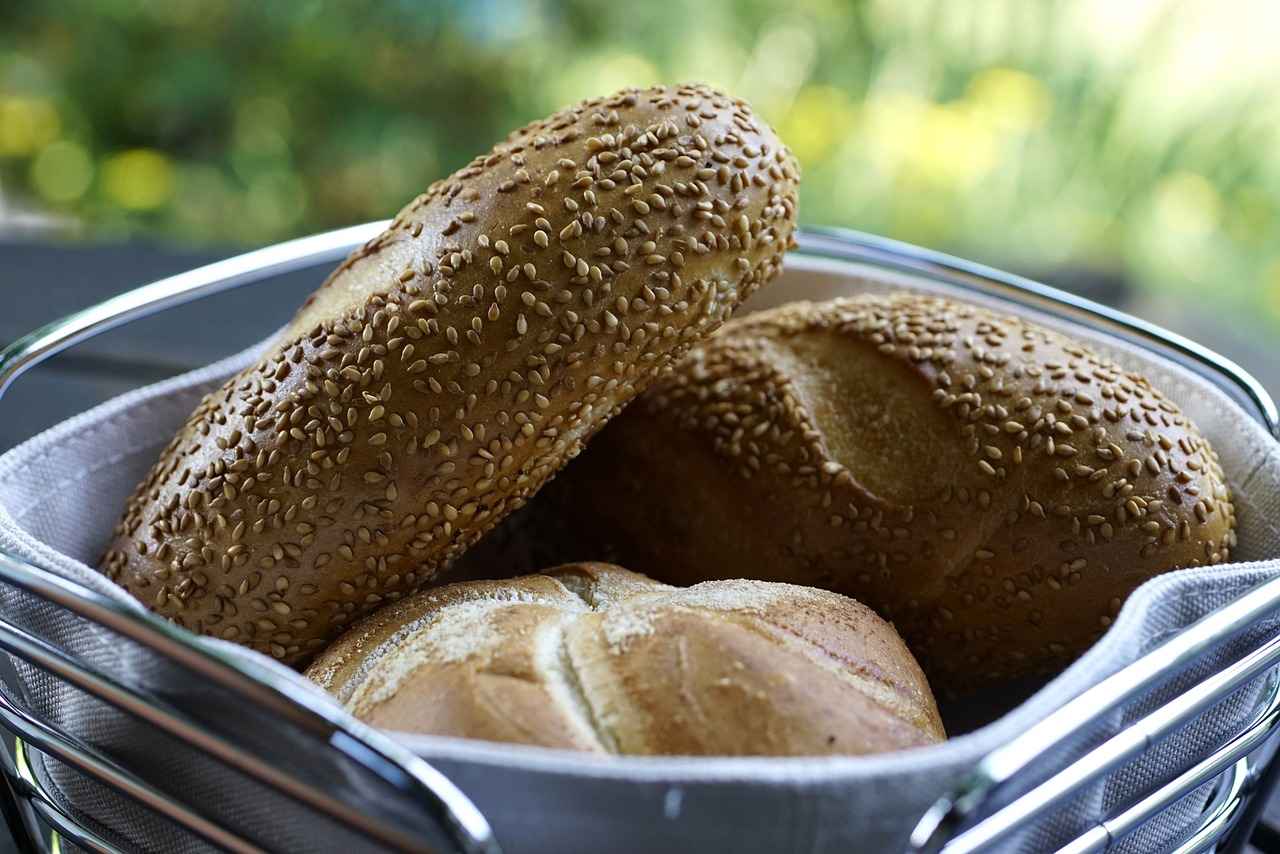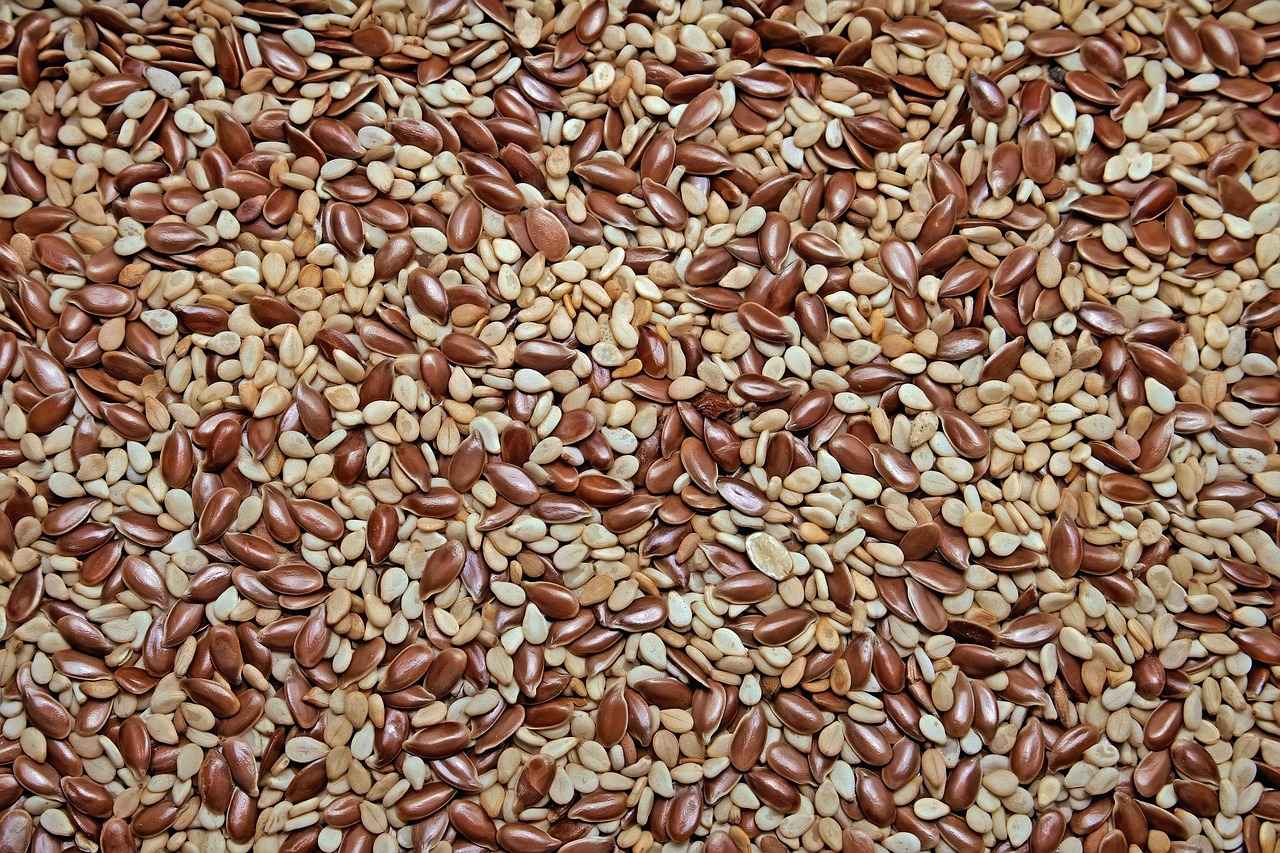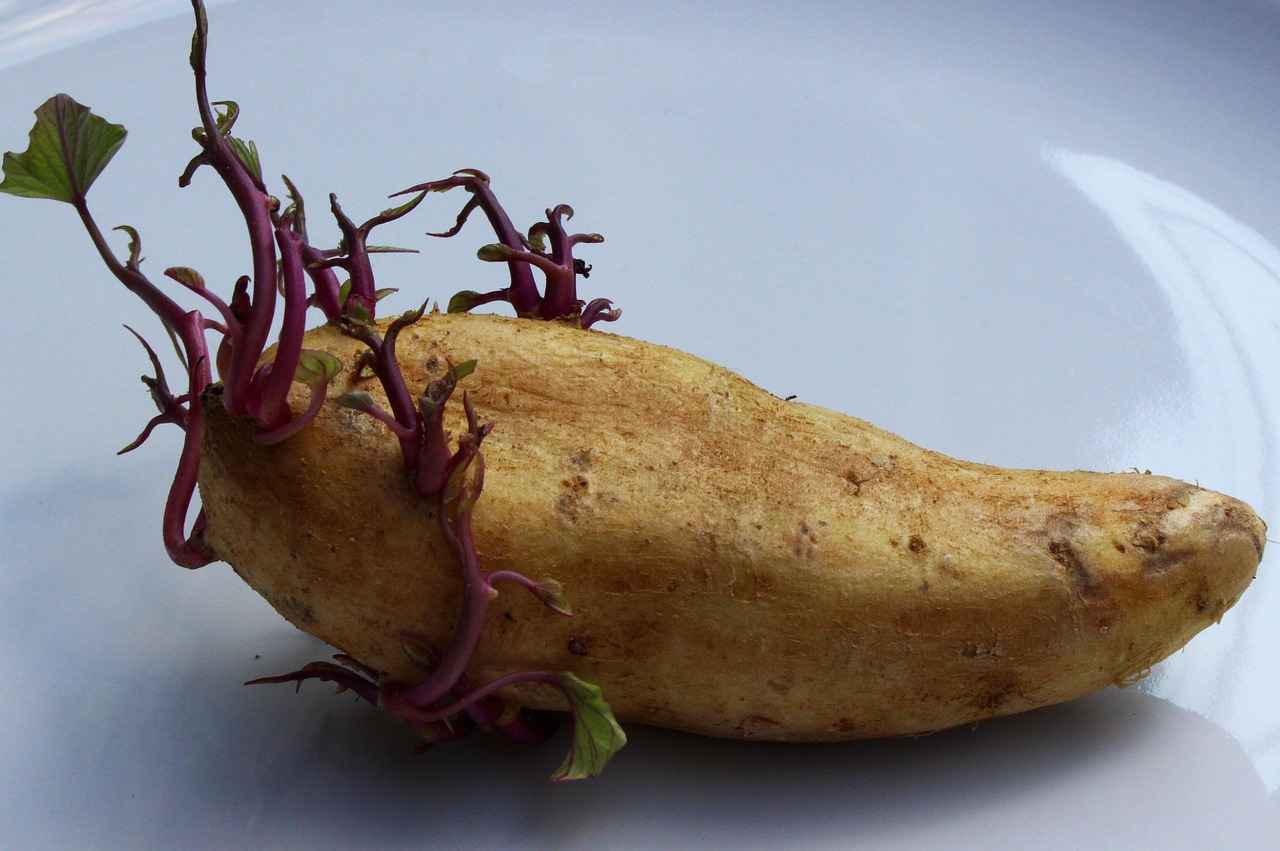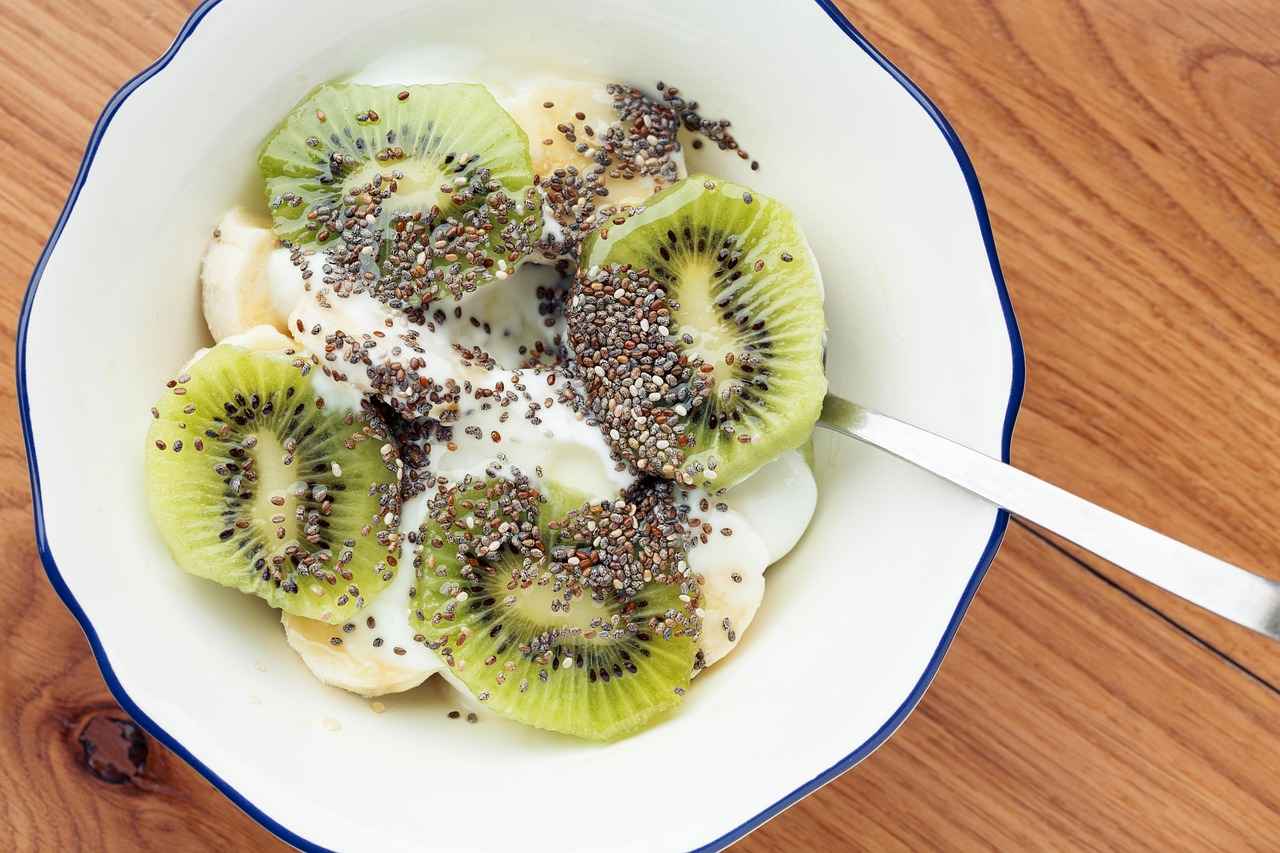Chia seeds have gained immense popularity in recent years, and for good reason. These tiny yet powerful seeds are packed with a variety of nutrients that can significantly enhance your health. This article aims to explore the myriad of health benefits associated with chia seeds, their nutritional profile, and how you can easily incorporate them into your daily diet.
Chia seeds, derived from the Salvia hispanica plant, are native to Mexico and Guatemala. These small black seeds have been consumed for centuries, valued for their impressive nutritional content. They are an excellent source of fiber, protein, omega-3 fatty acids, and essential minerals such as calcium, magnesium, and phosphorus.
Chia seeds are often labeled a superfood due to their exceptional nutrient density. They provide a rich source of antioxidants and are low in calories, making them a valuable addition to any healthy diet. Their ability to absorb liquid and form a gel-like consistency also makes them unique, allowing for various culinary applications.
The high levels of omega-3 fatty acids found in chia seeds play a crucial role in promoting heart health. These fatty acids help to lower cholesterol levels and reduce blood pressure, ultimately decreasing the risk of cardiovascular diseases. Additionally, the fiber content aids in maintaining a healthy heart by improving overall cholesterol profiles.
For those managing diabetes, chia seeds can be particularly beneficial. Their high fiber content slows digestion, which helps stabilize blood sugar levels and prevents spikes in glucose. This makes them a smart choice for individuals looking to manage their blood sugar more effectively.
Chia seeds are known for their ability to absorb water and expand in the stomach, promoting a feeling of fullness. This can assist in controlling appetite and supporting weight loss efforts. Incorporating chia seeds into meals can help you feel satisfied longer, reducing the likelihood of overeating.
The high fiber content in chia seeds not only aids digestion but also promotes gut health. Fiber is essential for maintaining a healthy digestive system, and it can help prevent constipation. Furthermore, it contributes to satiety, making it easier for individuals to manage their weight.
Incorporating chia seeds into your diet is simple and versatile. You can add them to smoothies, yogurt, and salads for an extra nutritional boost. They can also be used to create delicious chia pudding by soaking them in milk or a dairy alternative overnight, resulting in a nutritious snack.
Chia seeds are rich in antioxidants, which help combat oxidative stress in the body. This can lower the risk of chronic diseases, including cancer and heart disease. The antioxidants in chia seeds work to neutralize free radicals, promoting overall health and wellness.
While chia seeds are generally safe for most people, consuming them in large quantities may lead to digestive issues. It is important to stay hydrated and introduce chia seeds gradually into your diet to avoid any discomfort.
When comparing chia seeds to other superfoods, they stand out due to their unique nutrient profile. They offer higher levels of fiber and omega-3 fatty acids than many other seeds and nuts, making them a versatile addition to any diet.

What Are Chia Seeds?
Chia seeds are tiny, nutrient-dense seeds that come from the Salvia hispanica plant, which is native to regions of Mexico and Guatemala. These seeds have been a staple in the diets of ancient civilizations, including the Aztecs and Mayans, who valued them for their energy-boosting properties and health benefits. In recent years, chia seeds have gained popularity as a superfood due to their impressive nutritional profile, making them an essential addition to modern diets.
Chia seeds are a powerhouse of essential nutrients. They are particularly rich in:
- Omega-3 fatty acids: These healthy fats are crucial for heart health and brain function.
- Fiber: Aids in digestion and helps regulate blood sugar levels.
- Protein: Supports muscle growth and repair.
- Antioxidants: Protect cells from damage caused by free radicals.
- Vitamins and minerals: Including calcium, magnesium, and phosphorus.
The numerous health benefits of chia seeds make them a valuable addition to any diet:
- Heart Health: The high levels of omega-3 fatty acids in chia seeds can help reduce inflammation, lower cholesterol, and improve overall heart health.
- Weight Management: Chia seeds can absorb up to 12 times their weight in water, expanding in your stomach and creating a feeling of fullness, which can help control appetite.
- Digestive Health: Their high fiber content promotes healthy digestion and prevents constipation.
- Blood Sugar Control: The soluble fiber in chia seeds can slow down the absorption of sugar, helping to stabilize blood sugar levels.
Incorporating chia seeds into your diet is easy and versatile. Here are some practical ways to enjoy them:
- Add them to smoothies for an extra nutrient boost.
- Sprinkle chia seeds on top of yogurt or oatmeal.
- Mix them into baked goods, such as muffins or bread.
- Prepare chia pudding by soaking them in milk or a milk alternative overnight.
- Use them as a thickening agent in soups or sauces.
While chia seeds are generally safe for most people, it’s important to consume them in moderation. Some individuals may experience digestive discomfort, especially if they consume large quantities without adequate hydration. To minimize potential side effects, start with a small amount and gradually increase your intake while ensuring you drink plenty of water.
When compared to other superfoods, chia seeds offer unique advantages. For instance, they provide a higher concentration of fiber and omega-3 fatty acids than many other sources, such as flaxseeds or hemp seeds. This makes chia seeds a versatile option for those looking to enhance their nutrient intake.
In conclusion, chia seeds are not only a nutritious addition to your diet but also offer a myriad of health benefits. Whether you’re looking to improve your heart health, manage your weight, or boost your overall well-being, incorporating chia seeds into your meals can be a simple yet effective strategy. Their versatility and nutrient density make them a valuable superfood that can easily enhance your daily nutrition.

Why Are Chia Seeds Considered a Superfood?
Chia seeds have gained immense popularity in recent years, often being hailed as a superfood due to their remarkable nutritional profile. These tiny seeds, derived from the Salvia hispanica plant, are not only versatile but also packed with essential nutrients that can significantly benefit your health.
Nutrient-Dense Composition
- Omega-3 Fatty Acids: Chia seeds are one of the richest plant sources of omega-3 fatty acids, which are crucial for maintaining heart health. These healthy fats help reduce inflammation and lower the risk of heart disease.
- High Fiber Content: With an impressive 34 grams of fiber per 100 grams, chia seeds can aid in digestion and promote a healthy gut. Fiber also contributes to a feeling of fullness, which can assist in weight management.
- Antioxidants: Chia seeds are loaded with antioxidants that combat oxidative stress in the body. These antioxidants help protect cells from damage, reducing the risk of chronic diseases.
How Do Chia Seeds Support Overall Health?
The various nutrients found in chia seeds work synergistically to enhance overall health. For instance, the omega-3 fatty acids play a vital role in brain function, while the fiber content aids in regulating blood sugar levels. This makes chia seeds particularly beneficial for individuals with diabetes or those looking to manage their weight.
Are Chia Seeds Beneficial for Heart Health?
Yes! The omega-3 fatty acids in chia seeds help lower cholesterol levels and reduce blood pressure, promoting cardiovascular health. Regular consumption of chia seeds can lead to improved heart function and a decreased risk of heart-related issues.
Can Chia Seeds Help with Weight Management?
Chia seeds can be a valuable addition to a weight management plan. Their ability to absorb water and expand in the stomach creates a feeling of fullness, which can help control appetite and reduce overall calorie intake. Furthermore, their high fiber content aids in digestion, making them an excellent choice for those looking to lose weight.
How to Incorporate Chia Seeds into Your Diet?
Adding chia seeds to your diet is simple and versatile. Here are some practical ways to enjoy their benefits:
- Add them to smoothies for an extra nutrient boost.
- Mix them into yogurt or oatmeal for added texture and fiber.
- Use them in salads or as a topping for various dishes.
- Prepare chia pudding by soaking them in milk or a dairy-free alternative overnight.
Are There Any Risks to Consuming Chia Seeds?
While chia seeds are generally safe for most people, it is essential to consume them in moderation. Some individuals may experience digestive discomfort if they consume large quantities without adequate hydration. It’s advisable to start with small amounts and gradually increase your intake.
Final Thoughts
Chia seeds are a nutrient-dense superfood that can easily be incorporated into any diet. Their unique combination of omega-3 fatty acids, fiber, and antioxidants makes them a valuable addition for anyone looking to enhance their health. By understanding the benefits and potential risks, you can enjoy the many perks that chia seeds offer.

How Do Chia Seeds Boost Heart Health?
Chia seeds, often hailed as a superfood, are not just a trendy addition to smoothies and salads; they are a powerhouse of nutrients that can significantly enhance heart health. These tiny seeds, derived from the Salvia hispanica plant, are particularly rich in omega-3 fatty acids, which are essential for maintaining cardiovascular health.
Omega-3 Fatty Acids: The Heart’s Best Friend
The omega-3 fatty acids found in chia seeds, primarily in the form of alpha-linolenic acid (ALA), have been shown to provide numerous heart health benefits. Regular consumption of omega-3 fatty acids can lead to lower levels of triglycerides, reduced blood pressure, and improved overall cholesterol levels. These factors collectively contribute to a decreased risk of heart disease and stroke.
How Do Chia Seeds Help Lower Cholesterol?
Chia seeds can play a vital role in managing cholesterol levels. The soluble fiber in chia seeds helps to bind with bile acids in the digestive system, which can lead to a decrease in LDL (bad) cholesterol levels. By lowering these levels, chia seeds help to maintain a healthier lipid profile, reducing the risk of atherosclerosis — a condition characterized by the hardening of arteries.
The Role of Fiber in Heart Health
In addition to their omega-3 content, chia seeds are incredibly high in dietary fiber, with about 11 grams of fiber per ounce. This high fiber content is crucial for heart health as it helps regulate blood sugar levels and promotes healthy digestion. A diet rich in fiber can also help reduce inflammation, a key contributor to heart disease.
Blood Pressure Regulation
High blood pressure is a significant risk factor for cardiovascular diseases. The consumption of chia seeds has been linked to lower blood pressure levels, thanks to their rich nutrient profile, which includes magnesium and potassium. These minerals help relax blood vessels, leading to improved blood flow and reduced pressure on the cardiovascular system.
How to Incorporate Chia Seeds into Your Diet
- Smoothies: Add a tablespoon of chia seeds to your morning smoothie for a nutrient boost.
- Yogurt: Mix chia seeds into yogurt or oatmeal for added texture and health benefits.
- Baking: Incorporate chia seeds into baked goods like muffins or bread for an extra health kick.
- Chia Pudding: Combine chia seeds with almond milk and let them sit overnight for a delicious pudding.
Are There Any Risks?
While chia seeds offer numerous health benefits, it’s essential to consume them in moderation. Due to their high fiber content, excessive consumption may lead to digestive discomfort. Always ensure you are drinking plenty of water when incorporating chia seeds into your diet to aid digestion and maximize their benefits.
Final Thoughts
Incorporating chia seeds into your daily diet can be a simple yet effective way to support heart health. With their high omega-3 fatty acid content, fiber, and essential minerals, these tiny seeds pack a powerful punch. As always, consult with a healthcare provider before making significant changes to your diet, especially if you have existing health conditions.
What Role Do Omega-3 Fatty Acids Play?
Omega-3 fatty acids are a type of polyunsaturated fat that is essential for human health. These fats are not produced by the body and must be obtained through diet. Chia seeds, a popular superfood, are an excellent source of omega-3 fatty acids, particularly alpha-linolenic acid (ALA). This nutrient plays a crucial role in maintaining heart health and overall well-being.
Heart Health and Omega-3s
Research has shown that omega-3 fatty acids can significantly reduce the risk of heart disease. They help lower triglyceride levels and reduce blood pressure, which are both key factors in cardiovascular health. Additionally, omega-3s are known to decrease inflammation throughout the body. Chronic inflammation is a contributing factor to various heart conditions, making omega-3s vital for maintaining a healthy heart.
Brain Function and Cognitive Health
Omega-3 fatty acids are also essential for brain health. They contribute to the structure of cell membranes in the brain and play a role in neurotransmission. Studies suggest that adequate intake of omega-3s can improve cognitive function and may reduce the risk of neurodegenerative diseases such as Alzheimer’s. Furthermore, these fatty acids have been linked to improved mood and mental health, making them a valuable addition to a balanced diet.
Inflammation Reduction
Chronic inflammation is associated with numerous health issues, including arthritis, diabetes, and even certain cancers. Omega-3 fatty acids help modulate inflammatory responses in the body. By incorporating chia seeds into your diet, you can harness their anti-inflammatory properties, which may lead to improved joint health and reduced symptoms of inflammatory diseases.
Overall Well-Being
The benefits of omega-3 fatty acids extend beyond heart and brain health. They are also important for skin health, as they help maintain hydration and may reduce the risk of skin disorders. Additionally, omega-3s can support eye health by contributing to the structure of retinal cells, which is crucial for vision.
How to Incorporate Omega-3s into Your Diet
- Add chia seeds to smoothies or yogurt for a nutritious boost.
- Sprinkle chia seeds on salads or oatmeal for added texture and health benefits.
- Use chia seeds in baking, such as in muffins or bread, to enhance omega-3 content.
- Make chia pudding by soaking seeds in milk or a dairy alternative, creating a delicious and healthy snack.
Conclusion
Incorporating omega-3 fatty acids into your diet, particularly through sources like chia seeds, can lead to significant health benefits. From promoting heart and brain health to reducing inflammation and enhancing overall well-being, omega-3s are a vital component of a balanced diet. Given their numerous advantages, it is clear why chia seeds are celebrated as a superfood.
Can Chia Seeds Help Regulate Blood Sugar Levels?
Chia seeds have gained significant attention in the health community, particularly for their potential to assist in regulating blood sugar levels. This is largely attributed to their impressive fiber content, which plays a crucial role in managing glucose levels in the body.
When consumed, chia seeds absorb water and expand, forming a gel-like substance. This process not only enhances hydration but also slows down the digestion of carbohydrates. As a result, the release of glucose into the bloodstream is gradual, preventing sudden spikes in blood sugar levels. This characteristic makes chia seeds an excellent choice for individuals looking to maintain stable energy levels throughout the day.
Moreover, the soluble fiber in chia seeds helps improve insulin sensitivity, which is particularly beneficial for those with type 2 diabetes. Insulin sensitivity refers to how effectively the body responds to insulin, the hormone responsible for regulating blood sugar. By enhancing this sensitivity, chia seeds can contribute to lower blood sugar levels over time.
| Benefits of Chia Seeds for Blood Sugar Control | Explanation |
|---|---|
| High Fiber Content | Slows digestion and glucose absorption, preventing spikes in blood sugar. |
| Hydration | Absorbs water and expands, promoting a feeling of fullness and reducing hunger. |
| Improved Insulin Sensitivity | Enhances the body’s response to insulin, aiding in better blood sugar management. |
In addition to their blood sugar-regulating properties, chia seeds are rich in essential nutrients, including omega-3 fatty acids, protein, and various vitamins and minerals. These nutrients contribute to overall health and can support weight management, which is often a concern for individuals with diabetes.
Incorporating chia seeds into your diet is simple. They can be added to smoothies, oatmeal, yogurt, or even baked goods. For those looking for a nutritious snack, chia pudding is a popular option that combines chia seeds with milk or plant-based alternatives, allowing for a delicious and healthful treat.
It is important to note, however, that while chia seeds can be beneficial, they should be consumed in moderation. Excessive intake may lead to digestive discomfort due to their high fiber content. Always ensure adequate hydration when incorporating chia seeds into your diet.
In conclusion, chia seeds present a promising option for those seeking to manage their blood sugar levels effectively. Their unique properties not only help stabilize glucose levels but also provide a host of other health benefits that can enhance overall well-being. By incorporating chia seeds into a balanced diet, individuals can take a proactive step toward better health.

How Can Chia Seeds Aid in Weight Management?
Chia seeds have gained immense popularity as a weight management tool, and for good reason. These tiny, nutrient-packed seeds possess unique properties that can assist individuals in their journey toward achieving and maintaining a healthy weight. One of the most remarkable features of chia seeds is their ability to absorb water, expanding significantly in volume. This characteristic not only helps to create a sense of fullness but also plays a crucial role in appetite control.
What Makes Chia Seeds Unique?
Chia seeds can absorb up to 12 times their weight in water. When consumed, they form a gel-like substance in the stomach, which delays gastric emptying. This results in a prolonged feeling of satiety, helping to curb cravings and prevent overeating. By incorporating chia seeds into meals, individuals can effectively manage their hunger levels throughout the day, reducing the likelihood of snacking on unhealthy foods.
How Does Fiber Contribute to Weight Management?
The fiber content in chia seeds is another significant factor in their effectiveness for weight management. With approximately 11 grams of fiber per ounce, chia seeds are an excellent source of this essential nutrient. Fiber is known to promote digestive health and regulate bowel movements, but it also plays a vital role in weight control. High-fiber foods can help individuals feel fuller for longer periods, leading to reduced calorie intake overall.
- Improved Digestion: The fiber in chia seeds aids in digestion, which is essential for overall health and weight management.
- Blood Sugar Regulation: Fiber helps stabilize blood sugar levels, preventing spikes that can lead to increased hunger.
- Enhanced Nutrient Absorption: A healthy digestive system can improve the absorption of nutrients, which is crucial for weight loss.
How to Incorporate Chia Seeds into Your Diet?
Adding chia seeds to your diet is simple and versatile. Here are some practical ideas:
- Smoothies: Blend chia seeds into your favorite smoothie for an added nutrient boost.
- Yogurt: Mix chia seeds into yogurt for a satisfying and healthy snack.
- Salads: Sprinkle chia seeds on salads to enhance texture and nutritional value.
- Chia Pudding: Combine chia seeds with milk or a milk alternative and let it sit overnight for a delicious pudding.
Are There Any Risks?
While chia seeds are generally safe for most individuals, it’s essential to consume them in moderation. Due to their high fiber content, excessive consumption can lead to digestive discomfort. Additionally, it’s crucial to stay hydrated when consuming chia seeds, as they can absorb a significant amount of water.
Final Thoughts
Incorporating chia seeds into your diet can be an effective strategy for weight management. Their ability to promote a feeling of fullness, combined with their high fiber content, makes them a valuable addition to any weight loss plan. By understanding how to use chia seeds effectively, you can enhance your overall health and support your weight management goals.
What is the Role of Fiber in Chia Seeds?
Chia seeds, often hailed as a superfood, are not only versatile in culinary applications but also rich in essential nutrients. One of the standout features of chia seeds is their exceptionally high fiber content, which plays a crucial role in promoting overall health.
Fiber is a type of carbohydrate that the body cannot digest. Chia seeds contain about 34 grams of fiber per 100 grams, making them an excellent source of dietary fiber. This high fiber content contributes significantly to digestive health and overall wellness.
- Aids Digestion: The soluble fiber in chia seeds absorbs water, forming a gel-like substance in the stomach. This process slows down digestion, allowing for better nutrient absorption and a more gradual release of energy. By promoting regular bowel movements, chia seeds help prevent constipation and support a healthy digestive tract.
- Promotes Gut Health: The fiber in chia seeds acts as a prebiotic, feeding the beneficial bacteria in the gut. A healthy gut microbiome is essential for various bodily functions, including immune response and inflammation regulation. By enhancing gut health, chia seeds can contribute to improved overall well-being.
- Supports Weight Management: Chia seeds can help individuals manage their weight effectively. The high fiber content increases feelings of fullness, which can reduce overall calorie intake. When consumed, the seeds expand in the stomach, leading to prolonged satiety and decreased hunger pangs, making them a perfect addition to weight-loss diets.
In addition to these benefits, the fiber in chia seeds also plays a role in regulating blood sugar levels. By slowing down the digestion of carbohydrates, chia seeds can help prevent spikes in blood glucose, which is particularly beneficial for individuals with diabetes or those at risk of developing the condition.
Moreover, incorporating chia seeds into your diet is simple. They can be added to smoothies, yogurt, oatmeal, and baked goods, or used to create delicious chia pudding. This versatility makes it easy to enjoy their health benefits without compromising on taste.
Despite their many advantages, it’s essential to consume chia seeds in moderation and stay hydrated. Due to their high fiber content, excessive intake without adequate water can lead to digestive discomfort. It’s advisable to start with small amounts and gradually increase your intake to allow your digestive system to adjust.
In conclusion, the fiber content in chia seeds not only aids digestion and promotes gut health but also contributes to a feeling of fullness, making them a valuable ally in weight management. By incorporating chia seeds into your daily diet, you can harness their numerous health benefits, enhancing your overall well-being.
How Can You Incorporate Chia Seeds into Your Diet?
Chia seeds, known for their impressive nutrient profile, can easily be incorporated into your daily meals, enhancing both flavor and health benefits. Their versatility makes them a popular choice for those looking to boost their nutrition without altering their favorite recipes significantly.
One of the simplest ways to enjoy chia seeds is by adding them to smoothies. Just a tablespoon of chia seeds can provide a nutrient boost without overwhelming the flavor. They blend well with fruits, greens, and liquids, making them an excellent addition to your morning routine. Simply combine your favorite fruits, a handful of spinach, and a cup of almond milk, then add chia seeds for an extra punch of fiber and omega-3 fatty acids.
Another popular method is to sprinkle chia seeds over yogurt. This not only adds a delightful crunch but also increases the nutritional value of your snack. You can mix chia seeds into plain yogurt and let it sit for a few minutes to allow them to absorb moisture, creating a thicker texture. Top with fresh fruits, nuts, or honey for a delicious and healthy treat.
For those who enjoy salads, chia seeds can be a fantastic addition. They can be sprinkled on top of salads or mixed into dressings. Their nutrient density complements leafy greens and vegetables, making your salads not only more filling but also more beneficial for your health. Try mixing them into a vinaigrette for a unique twist.
Chia pudding is a popular and nutritious snack that’s easy to prepare. To make chia pudding, combine chia seeds with your choice of milk (dairy or plant-based) and a sweetener like honey or maple syrup. Let the mixture sit in the refrigerator for several hours or overnight to allow the seeds to absorb the liquid and swell. This results in a creamy, pudding-like texture that can be enjoyed on its own or topped with fruits, nuts, and granola.
Chia seeds can also be added to baked goods such as muffins, breads, and pancakes. They can replace eggs in recipes by mixing 1 tablespoon of chia seeds with 2.5 tablespoons of water and letting it sit until it forms a gel-like consistency. This not only makes your baked goods healthier but also adds moisture and texture.
For a nutritious breakfast, consider adding chia seeds to your hot or cold cereals. They can enhance the fiber content and provide lasting energy throughout the morning. Simply stir in a tablespoon of chia seeds to oatmeal or cold cereal, and enjoy the added health benefits.
Chia seeds can also be incorporated into soups and stews as a thickening agent. They absorb liquid and expand, which can help create a heartier consistency. Just add a tablespoon or two to your favorite soup recipe for added thickness and nutrition.
In summary, chia seeds are a versatile ingredient that can be easily integrated into various meals and snacks. Their health benefits, combined with their ability to enhance texture and flavor, make them a valuable addition to any diet. Whether you’re blending them into smoothies, sprinkling them on salads, or creating delicious puddings, chia seeds offer a myriad of ways to boost your nutritional intake.

What Are the Antioxidant Properties of Chia Seeds?
Chia seeds have gained immense popularity in recent years, and one of the primary reasons for this is their rich content of antioxidants. These tiny seeds, derived from the Salvia hispanica plant, are not just a passing trend; they are a powerhouse of nutrients that can significantly benefit your health.
Antioxidants are compounds that help neutralize free radicals in the body. Free radicals are unstable molecules that can cause oxidative stress, leading to cell damage and contributing to various chronic diseases, including cancer and heart disease. By incorporating foods rich in antioxidants, like chia seeds, you can help protect your body from these harmful effects.
Chia seeds are packed with a variety of antioxidants, including quercetin, kaempferol, and chlorogenic acid. These antioxidants work synergistically to combat oxidative stress. When consumed, they help to scavenge free radicals, reducing their ability to cause cellular damage.
- Reduced Risk of Chronic Diseases: By lowering oxidative stress, antioxidants in chia seeds can significantly reduce the risk of chronic diseases.
- Anti-Inflammatory Properties: The antioxidants found in chia seeds also possess anti-inflammatory properties, which can help reduce inflammation in the body.
- Heart Health: By combating oxidative stress, chia seeds may help lower blood pressure and cholesterol levels, promoting overall heart health.
To fully enjoy the antioxidant benefits of chia seeds, it’s essential to incorporate them into a balanced diet. Here are some practical tips:
1. Add chia seeds to smoothies for a nutrient boost.2. Mix them into yogurt or oatmeal for a healthy breakfast.3. Use them as a thickening agent in soups and sauces.4. Create a chia seed pudding for a delicious dessert.
While chia seeds are generally safe for most individuals, it’s important to consume them in moderation. Some people may experience digestive discomfort if they consume too many seeds at once. To avoid this, start with a small amount and gradually increase your intake while ensuring you drink plenty of water.
With their impressive antioxidant properties, chia seeds are a simple yet effective way to enhance your diet and overall health. By incorporating these seeds into your meals, you can take a proactive step towards reducing oxidative stress and lowering your risk of chronic diseases. Remember to enjoy them as part of a varied diet for maximum benefits!

Are There Any Risks Associated with Chia Seeds?
Chia seeds have gained immense popularity in recent years, often hailed as a superfood due to their impressive nutrient profile. However, as with any food, it is crucial to understand the potential risks associated with their consumption. In this section, we will explore the possible side effects of chia seeds, ensuring you can enjoy their benefits safely.
While chia seeds are generally well-tolerated, some individuals may experience digestive discomfort when consuming them in excessive amounts. This can include symptoms such as bloating, gas, and constipation. Chia seeds are high in fiber, and if introduced too quickly into the diet, they can overwhelm the digestive system, particularly for those who are not accustomed to a high-fiber intake.
One of the critical factors to consider when consuming chia seeds is hydration. Chia seeds can absorb up to 12 times their weight in water, which means they can expand significantly in your stomach. To prevent any potential digestive issues, it is essential to stay adequately hydrated. Drinking plenty of water not only helps in the digestion of chia seeds but also aids in overall digestive health.
To enjoy the benefits of chia seeds without adverse effects, it is advisable to start with a small serving size. A typical recommendation is to begin with one tablespoon (about 15 grams) per day and gradually increase the amount as your body adjusts. This gradual introduction helps your digestive system adapt to the increased fiber intake, minimizing the risk of discomfort.
Although rare, some individuals may experience allergic reactions to chia seeds. Symptoms can include itching, swelling, or difficulty breathing. If you have a history of allergies to sesame seeds or other similar seeds, it is advisable to consult with a healthcare professional before adding chia seeds to your diet.
Chia seeds may also interact with certain medications, particularly those that affect blood sugar levels or blood pressure. Due to their ability to lower blood sugar and blood pressure, individuals on medications for diabetes or hypertension should consult their healthcare provider before incorporating chia seeds into their diet.
To safely enjoy the benefits of chia seeds, consider the following tips:
- Start Small: Begin with a small amount and gradually increase your intake.
- Stay Hydrated: Drink plenty of water to help with digestion.
- Mix with Other Foods: Incorporate chia seeds into smoothies, yogurt, or oatmeal to enhance texture and flavor.
- Consult a Professional: If you have any underlying health conditions or concerns, seek advice from a healthcare professional.
In summary, while chia seeds offer numerous health benefits, it is essential to be aware of the potential risks associated with their consumption. By understanding how to incorporate them safely into your diet, you can enjoy their advantages without experiencing adverse effects.

How Do Chia Seeds Compare to Other Superfoods?
When it comes to superfoods, chia seeds have gained significant attention for their impressive nutritional profile. Unlike many other superfoods, they offer a unique combination of essential nutrients that can enhance overall health and well-being. This article will explore how chia seeds stand out among other superfoods, highlighting their exceptional benefits and versatility.
Unique Nutrient Profile
Chia seeds are remarkably rich in fiber, providing a whopping 11 grams of fiber per ounce. This is significantly higher than many popular superfoods, such as quinoa or flaxseeds. The high fiber content aids digestion and promotes gut health, making chia seeds an excellent choice for those seeking to improve their digestive health.
Omega-3 Fatty Acids: A Key Component
One of the most notable features of chia seeds is their high concentration of omega-3 fatty acids. They contain more omega-3s than salmon, which is often touted as a top source of these essential fats. Omega-3 fatty acids play a crucial role in reducing inflammation, supporting heart health, and enhancing brain function. In comparison to other superfoods like hemp seeds or walnuts, chia seeds provide a plant-based source of omega-3s that is easily digestible and versatile.
Antioxidant Powerhouse
Chia seeds are also packed with antioxidants, which help combat oxidative stress in the body. While many superfoods, such as blueberries and acai berries, are known for their antioxidant properties, chia seeds offer a unique blend of antioxidants that contribute to their health benefits. These antioxidants help fight free radicals, reducing the risk of chronic diseases and promoting overall health.
Weight Management Benefits
For those looking to manage their weight, chia seeds can be particularly beneficial. Their ability to absorb water and expand in the stomach creates a feeling of fullness, which can help control appetite. This characteristic is not as pronounced in other superfoods like spirulina or maca powder, making chia seeds a more effective option for those focused on weight loss and management.
Versatile Culinary Uses
Another aspect that sets chia seeds apart is their versatility in the kitchen. They can be easily incorporated into a variety of dishes, from smoothies and salads to baked goods and puddings. This adaptability is not always found in other superfoods, which may have more limited culinary applications. For instance, while kale is a nutrient-rich superfood, its strong flavor may not appeal to everyone, whereas chia seeds have a mild taste that blends seamlessly into many recipes.
Conclusion
In summary, chia seeds compare favorably to other superfoods due to their unique nutrient profile, high omega-3 and fiber content, and versatility in culinary applications. They stand out as a powerful addition to any diet, offering numerous health benefits that can enhance overall well-being. Whether you are looking to boost heart health, aid digestion, or manage your weight, incorporating chia seeds into your daily routine can be a simple yet effective way to harness the power of this remarkable superfood.
Frequently Asked Questions
- What are the main health benefits of chia seeds?
Chia seeds are packed with nutrients such as omega-3 fatty acids, fiber, and antioxidants. These components contribute to heart health, improved digestion, and better blood sugar regulation, making them a fantastic addition to your diet.
- How can I incorporate chia seeds into my meals?
You can easily add chia seeds to smoothies, yogurt, salads, or even baked goods. They can also be transformed into a delightful chia pudding by soaking them in liquid, which makes for a nutritious snack!
- Are there any side effects of consuming chia seeds?
While chia seeds are generally safe, consuming them in excess may lead to digestive issues. It’s best to start with small amounts and drink plenty of water to help with digestion.
- How do chia seeds compare to other superfoods?
Chia seeds stand out due to their high fiber and omega-3 content. Unlike many other superfoods, they offer a unique combination of nutrients that can support overall health and wellness.
- Can chia seeds help with weight management?
Absolutely! Chia seeds absorb water and expand in your stomach, helping you feel fuller for longer. This natural appetite control can be beneficial for those looking to manage their weight.












